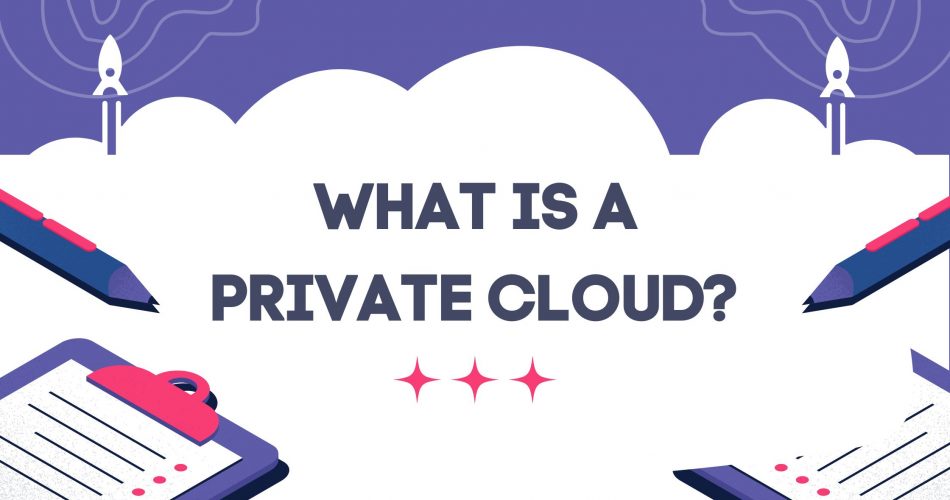A Private cloud is one of the most popular cloud computing methods. It is also called an Internal Cloud or Private Cloud. As the name suggests, it provides computing services exclusively for an organization. It can be located both on-premises in a company office or at a third-party data center operator facility, depending on the preference of the organization.
When it’s located inside the organization’s premises, it’s the responsibility of the organization to maintain both hardware and software, and its requirements such as consistent availability of electricity, Internet, etc.
If you’re insisting that all your data has to stay within your organization, usually, the public cloud solution provider would take care of hardware and software aspects, given if you can arrange for uninterruptible power and network connectivity at your place.
But, when it’s located in a service provider’s data center, usually they would have arranged everything for you. With redundant power and network connectivity, third-party data centers prove to save a lot of time in a Private cloud deployment. And it’s cost-efficient too since they buy everything in scale from their vendors, and data centers usually share their cost-savings with you.
In a nutshell, with a data center operator, your Cloud can be deployed very quickly like in just weeks rather than months, and usually, they have better infrastructure to house your servers.
But it is rather not a compulsion to host in their facilities as you can always opt to use your own office space.
Here are some of the pros and cons of choosing a Private Cloud system rather than a Public Cloud:
Pros:
Control over your data:
Unlike Public clouds, Private clouds give greater control over your data.
You get to decide which server holds which data, and which person can get their hand on which pieces of data.
This sort of data privacy and control over data is crucial when your application hosts sensitive information like health data, or if it runs finance-related applications.
With this sort of control and security, meeting compliance requirements like HIPAA and ISO 27001 are much easier too.
Customization:
This one is the major advantage of using a Private cloud. When you choose a Private cloud as your way to store data and host your services, from both hardware and software levels you can customize your cloud based on the requirements you have to store data and run your specific applications.
Compliance:
In case you are running an organization that has the responsibility of handling sensitive info like health details, you can opt for a private cloud.
As it gives greater control over your data, and as there is no involvement of third-party service providers, there is only less possibility of data leakage. This in turn helps you get HIPAA and ISO 27001 certified.
Cons:
Cost:
Comparatively speaking, Private Clouds are a bit more expensive than public clouds because maintaining those isn’t as cheaper as we imagine as we have to pay these individuals.
It also varies based on your choice of location of the servers(i.e, on-premises or off-premises).
However, if you rather prefer to keep all your servers and your data inside your facility and won’t mind spending some additional money, on-prem is the way to go!
Conclusion:
If you have strict data compliance requirements, a private cloud is the best solution for you and your customers. A public cloud may not meet compliance or regulatory requirements sometimes for some use-cases. If your project is one such, a private cloud is the best solution available for you.

